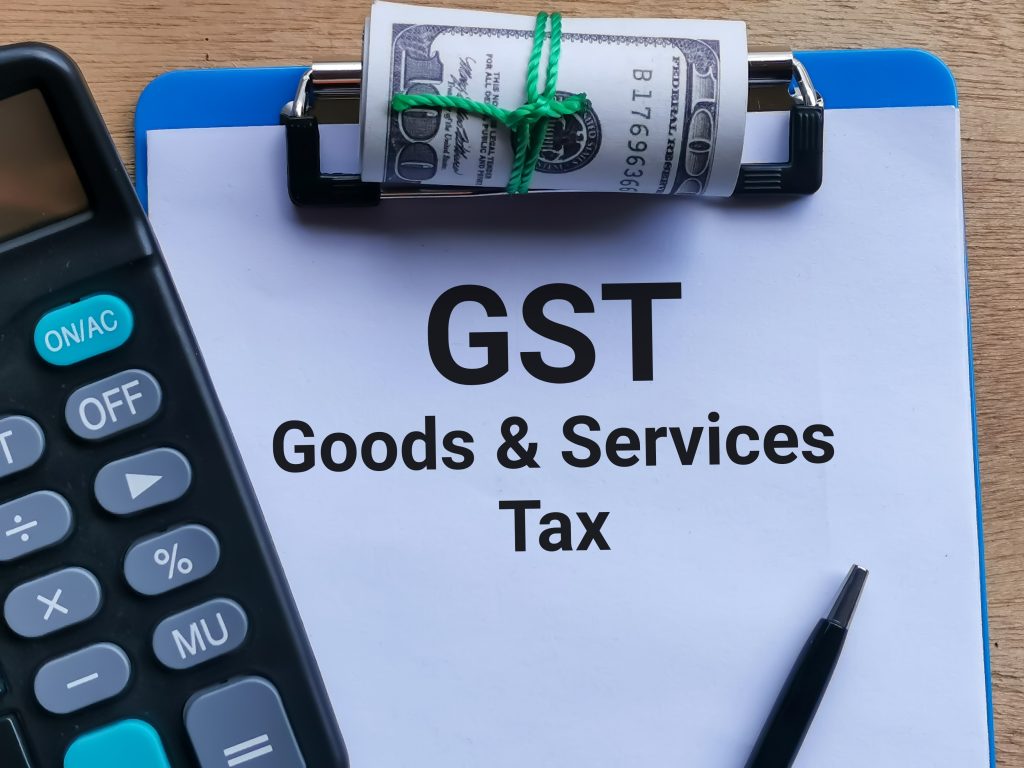No Time to Read? Here’s a Quick Summary
Airbnb taxes in New Zealand are something every host needs to understand, especially if you’re earning from short-term rentals. Here’s the key stuff you need to know:
- Report Your Income: Whether you rent out a room or an entire property, your income is taxable, and you need to report it on your tax return.
- GST Registration: If you make over $60,000 a year, you must register for GST and remit it to the IRD. If you’re under the threshold, you don’t need to register, but Airbnb still charges GST on the service fee.
- Claiming GST: If registered, you can claim GST on property-related expenses like maintenance or cleaning.
- Stay Compliant: Keep detailed records of your earnings and expenses to avoid penalties, and consult a tax professional if you’re unsure. At BH Accounting, we can connect you with the best professionals.
There you have it—a quick breakdown of Airbnb taxes. Now you’re set to keep things running smoothly and stay stress-free!
So, you’ve jumped on the Airbnb bandwagon in New Zealand—awesome! But hold on, we need to talk about something that might not be as exciting as getting your first guest, and that’s Airbnb taxes. From GST to income tax, there’s a lot to get your head around. Trust me, I’ve been there.
If you’re renting out a spare room or juggling a few properties, getting a handle on your tax responsibilities now will save you from any nasty surprises when the IRD comes knocking at the end of the year. You’ll need to track your Airbnb income, report it in your tax return, and, if your earnings hit the GST threshold, make sure you’re registering and remitting GST.
Let’s break it down so you can keep your finances compliant and still focus on what you love—welcoming guests. Ready to navigate the tax laws and keep your hosting stress-free? Let’s dive in!
Understanding Airbnb Taxes in New Zealand
Alright, let’s get real—Airbnb taxes in New Zealand are something you can’t ignore and the rules are different from overseas. If you’ve decided to rent out your place, or even just a room, it’s crucial to understand the tax obligations that come with it. We’re talking GST, income tax, and making sure everything’s filed right so the IRD doesn’t come knocking with a big fat penalty. The good news? It’s all manageable if you know what you’re doing. Let’s break it down.
Do You Need to Report Your Airbnb Income?
Here’s the deal—any income you make from Airbnb is taxable in New Zealand. Whether you’re renting out a spare room for a few nights a month or managing a full-time short-term rental business, that money is part of your taxable income. You need to report it on your tax return at the end of the year.
For example, let’s say you make $1,500 a month renting out a room. That’s $18,000 a year—and the IRD wants its share of that income.
- Income tax: If you’re earning more than the basic personal tax exemption, you’ll need to pay income tax on that rental income. For $18,000, you’ll be taxed at the personal income rate, which varies depending on how much you make overall.
- GST: If you’re making over $60,000 a year from short-term rentals, you’re required to register for GST and pay it on top of your rental income.
Let’s say you’ve registered for GST, and Airbnb collects 15% GST on the rent. If you’re charging $100 per night and have guests for 10 nights, you’ll need to add $15 per night for GST—that’s $150 for those 10 nights.
Want to know more about how to declare your Airbnb income? Check out our full article on “Do I need to declare my Airbnb income?” to get the complete breakdown.

Understanding GST and How It Affects Your Rentals
Here’s where things can get a bit tricky—if you’re earning over $60,000 a year from your Airbnb rentals, you’ll need to register for GST with the IRD. This means you’ll be collecting GST on your rental income and remitting it to the government. But don’t worry, it’s not all bad news. Once you’re registered for GST, you can also claim GST on your expenses, like cleaning fees, maintenance, or property-related purchases. For example, if you spend $500 on a new bed for your rental and it includes GST, you can claim that back.
The key thing to remember is if you’re earning over the GST threshold, you can’t ignore this. For instance, let’s say your total income from Airbnb in the year is $75,000. You’ll be required to register for GST, and you’ll be charging your guests an extra 15% on top of their booking fee. This GST is then passed on to the IRD, but you’ll need to keep track of the amount you’ve collected, which will come in handy when you file your GST return.
How GST Works for Airbnb Hosts in New Zealand
Now, let’s dive into the specifics of GST—the part of Airbnb taxes that trips up a lot of hosts. If your income exceeds a certain threshold, registering for GST is required, and it’s important to get it right from the start. Airbnb hosts in New Zealand are required to understand how to calculate, charge, and remit GST to the IRD. Let’s break down the numbers and see how it affects your rentals.
How GST Impacts Your Earnings as an Airbnb Host
If your total annual income from Airbnb exceeds $60,000, you must register for GST. But it’s not just about paying extra tax—it’s about being able to claim it back on your expenses as well. Here’s how it all works:
| Income Amount | GST Requirement | Potential GST Collected | GST Payable to the IRD |
|---|---|---|---|
| $60,000 | Must register for GST | $9,000 | $9,000 |
| $100,000 | Must register for GST | $15,000 | $15,000 |
| $150,000 | Must register for GST | $22,500 | $22,500 |
The table shows how much GST you could be collecting from your guests once you hit the $60,000 threshold and above. For instance, if you charge $100 per night and have guests for 1,000 nights in a year, you’ll collect $15,000 in GST at a 15% rate if you make $100,000 in rental income.
A recent report by the New Zealand Government shows that over 70% of short-term rental operators in the country are unaware of the exact GST rules that apply to them. This statistic highlights how crucial it is for hosts to understand these rules and ensure they are correctly registered and remitting the right amount of GST to the IRD.

GST for Non-Registered Hosts
What if you’re under the $60,000 threshold? Good news: you don’t need to register for GST. However, even if you’re not registered, Airbnb will still charge GST on the service fee it collects from guests, so you’re not exempt from paying it on that part of the transaction. But, non-registered hosts can’t claim GST refunds on their expenses—this can have a big impact on costs.
How Does GST Affect Your Airbnb Business?
- If you’re GST registered, you need to keep track of how much GST you’re collecting and remit that to the IRD.
- If you’re not registered, you still pay GST on Airbnb’s service fees, but you don’t get to claim back on other expenses related to the property.
- The key takeaway here is to track every single expense and rental income closely to ensure you’re filing everything accurately at the end of the year.
How to Stay Compliant with Airbnb Tax Obligations
Alright, we’ve covered the basics of Airbnb taxes—now let’s talk about staying compliant. The IRD isn’t messing around when it comes to taxes, and getting caught out with late payments or incorrect filings can cost you. But the good news is, it’s all avoidable if you stay on top of things. I’ve been there, trust me—keeping your Airbnb taxes in order isn’t as hard as it seems once you break it down into simple steps.
Reporting Your Airbnb Income and Paying Taxes
First thing’s first: you need to report your Airbnb income. Whether you’re just renting out a room or running a full-time business, you need to include this income on your tax return. If you’re not sure how to report it, don’t stress. The IRD’s got clear guidelines on how to include rental income and any GST you’ve collected from your guests.
Let’s break it down:
- Income tax: If your total income from Airbnb exceeds the basic tax-free threshold, you’ll need to pay income tax on the profits.
- GST: If you make over $60,000 a year, you’ll need to be GST-registered. Airbnb collects and remits the GST for you, but you still need to track it and ensure everything is filed correctly.
Filing Your GST Returns and Managing Expenses
If you’ve registered for GST, you’ll need to file GST returns periodically (usually every 6 months or annually). It’s crucial to keep track of your expenses—everything from cleaning fees to property maintenance and utility costs can be claimed. If you’re GST registered, you’ll want to make sure you claim GST refunds on any property-related expenses to keep your tax bill in check.
A good rule of thumb: set up a system that helps you track all your income and expenses. Whether it’s a simple spreadsheet or accounting software, having everything recorded makes tax time so much easier.

Tips for Avoiding Common Mistakes
Here are some quick tips to keep things smooth:
- Stay on top of your GST registration: If you hit the $60,000 income mark, don’t wait too long to register for GST. The IRD won’t give you a break if you miss the deadline.
- Keep detailed records: Always track your Airbnb income and expenses. It’ll save you a ton of stress later when you’re filing your tax returns.
- Consult a tax professional: If you’re unsure about anything, a professional can help you navigate the complex world of Airbnb taxes and ensure you’re compliant like what to claim on a rental property for exemple. At BH Accounting, we can help connect you with the best professionals to guide you through the process.
Final Thoughts
Look, Airbnb taxes might not be the highlight of your hosting journey, but trust me, getting them right now will save you from a whole lot of stress down the road. Stay on top of your GST and income tax obligations, keep track of your income and expenses, and make sure you file everything on time. It might seem like a lot, but once you’ve got a system in place, it’s smooth sailing.
If you’re ever unsure, don’t hesitate to reach out. At BH Accounting, we can help connect you with the right professionals to guide you through it. Happy hosting!
